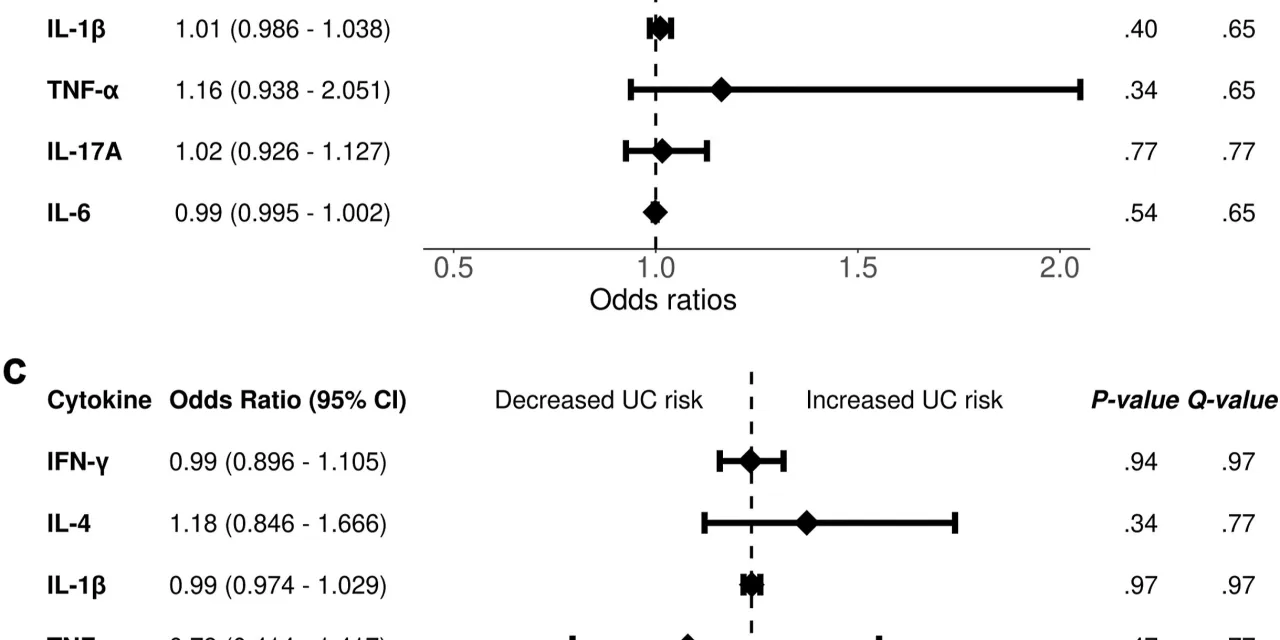Groundbreaking research opens doors to early screening and prevention in children.
Inflammatory bowel diseases (IBD), such as Crohn’s disease and ulcerative colitis, have been on the rise across the Western world, with no known cure. In Denmark alone, 50,000 individuals are affected by these chronic illnesses, a number that has doubled over the past two decades. While most cases are diagnosed in early adulthood, a small group of children are identified in their early years, particularly if they show symptoms like weight loss, abdominal pain, diarrhea, or bleeding.
Now, a team of researchers from the Center for Molecular Prediction of Inflammatory Bowel Disease (PREDICT) at Aalborg University in Denmark has made a significant discovery that could change how early the disease is detected. Their study, published in Gastroenterology, reveals that children diagnosed with IBD before the age of six show biological changes associated with the disease at birth.
Ph.D. student Jonas Julius Rudbæk, a key researcher from PREDICT, explains the implications of these findings: “By comparing blood samples from newborns who later develop IBD with those who do not, we can better understand what happens in the body before symptoms appear. Since young children often cannot describe their pain, this could open the door to screening newborns for early signs of the disease, potentially allowing us to prevent its onset.”
A Landmark Discovery in IBD Research
While previous studies have shown that certain inflammatory markers can be detected up to a decade before diagnosis, the new research suggests that in children diagnosed before the age of six, these changes are present at birth. This could lead to earlier detection, especially for this younger subgroup, who tend to be more severely affected by the disease.
“We only see these early signs of IBD in very young children,” says Rudbæk. “This supports the idea that we are dealing with a specific group of children who are particularly severely affected, making it crucial to investigate preventive options for this subgroup.”
A Path to Prevention
IBD is characterized by an overactive immune system that leads to chronic inflammation in the intestines, causing persistent symptoms like diarrhea, abdominal pain, and fatigue. The ability to detect biological markers at birth could significantly alter the management of the disease, shifting the focus toward prevention rather than treatment after the disease has progressed.
Professor Dr. Med. Tine Jess, director of PREDICT, emphasizes the broader implications of the study: “Our study is a unique example of how Denmark’s health data and biobank resources can provide crucial insights into the origins of diseases. In the future, the knowledge we gain from this resource will help prevent many chronic conditions, including inflammatory bowel diseases, not only in Denmark but worldwide.”
While the research is still in its early stages, it represents a promising step toward preventing IBD in its most severe cases. Future studies will aim to delve deeper into the biological changes seen in newborns and explore potential preventive strategies for at-risk groups.
Moving Forward
Although this discovery marks the first time such a connection has been demonstrated globally, Rudbæk and his team are cautious. “This is the first time such a connection has been demonstrated globally, and it’s an incredibly important step. Now, the field needs to further explore the details of what we’ve uncovered,” he says.
As research continues, the hope is that one day, screening for IBD could become a routine part of newborn health assessments, offering new opportunities to prevent the disease before symptoms even appear. This groundbreaking study provides a glimpse into a future where chronic illnesses like IBD could be tackled at their very origin.
For more information, the study, Inflammatory Markers at Birth and Risk of Early-Onset Inflammatory Bowel Disease, can be found in the journal Gastroenterology.












